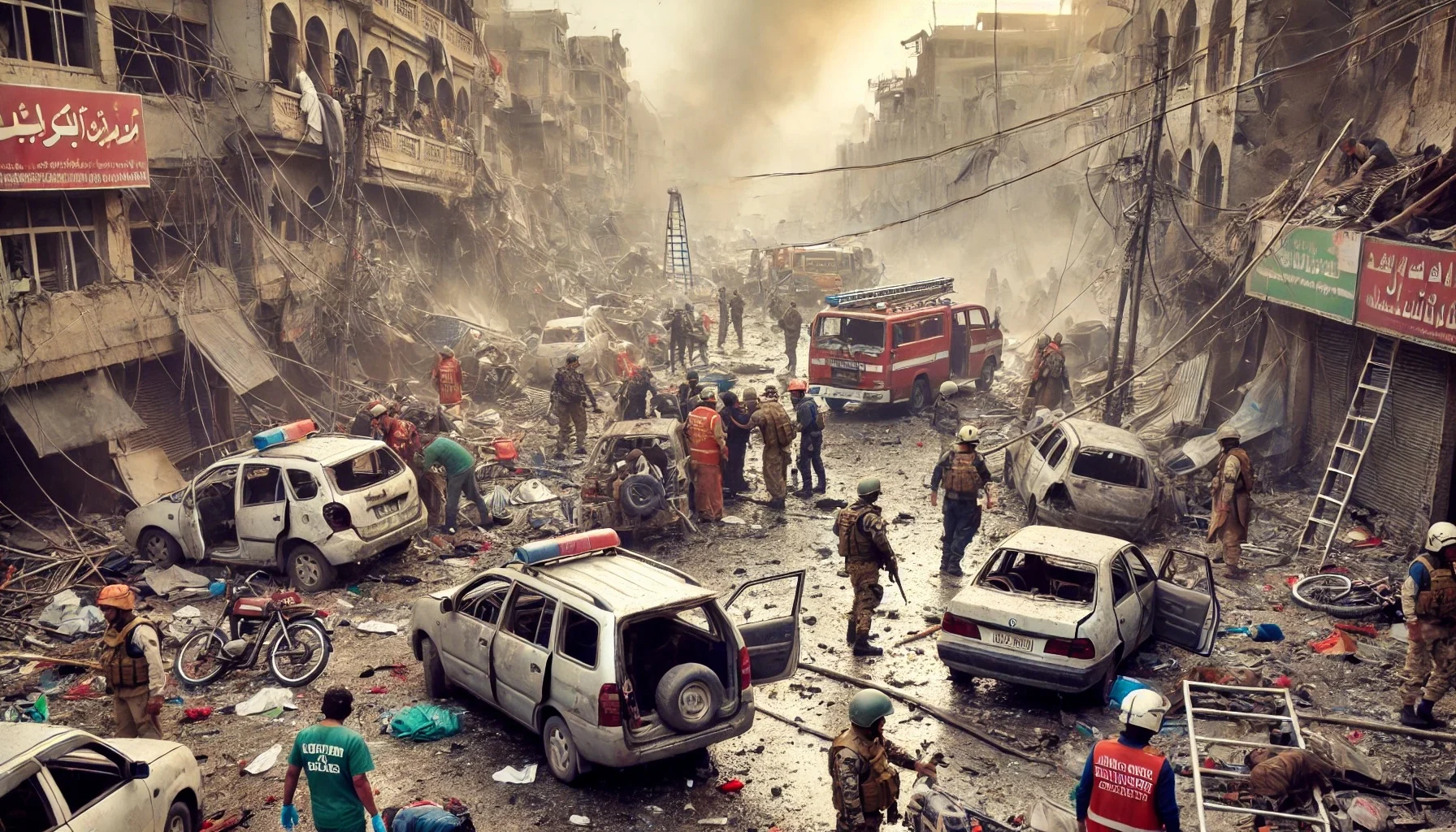
The 2011 Mumbai Bombings
by: The Calamity Calendar Team
July 13, 2011
The Calm Before the Storm
Mumbai, India’s financial powerhouse, has often found itself in the crosshairs of terror. The memories of the 2008 Mumbai attacks were still fresh when, on a warm evening in July 2011, the city was jolted once again. The bustling streets of Mumbai, crowded with people heading home, transformed into scenes of chaos and destruction.
The Devastating Blasts
On July 13, 2011, at precisely 6:54 PM, a powerful blast tore through Zaveri Bazaar, a historic market area known for its jewelry shops. Just a minute later, at 6:55 PM, a second explosion rocked Opera House, a business hub. The final bomb exploded at 7:06 PM in Dadar West, a busy residential and commercial area. These locations, spread across central Mumbai, were deliberately chosen for their dense population and economic significance.
Zaveri Bazaar
Zaveri Bazaar, a maze of narrow lanes and glittering shopfronts, became an instant scene of devastation. The explosion shattered windows, ripped through buildings, and left a cloud of smoke and debris. Emergency services rushed to the scene, navigating the congested streets to reach the wounded.
Thanks for subscribing!
Opera House
Barely a kilometer away, the Opera House area was next. Known for its diamond trading centers, this locale saw a similar fate. The blast caused chaos, with traders and workers fleeing the scene in panic. The timing and precision of the attacks pointed to a coordinated effort designed to maximize casualties and disruption.
Dadar West
Dadar West, a melting pot of commuters, was the final target. The explosion here was equally destructive, leaving behind a trail of injured and dead. The bustling evening market and residential complexes nearby bore the brunt of the attack, highlighting the terrorists’ intention to instill fear and uncertainty.
The Human Toll
The immediate aftermath was harrowing. Official reports confirmed 26 deaths, but the number of injured varied, with estimates ranging from 130 to 150. The blasts not only took lives but also shattered the sense of security in a city already scarred by previous attacks. Families mourned, survivors grappled with trauma, and the city once again confronted the grim reality of terrorism.
Economic Impact
The economic impact was significant. Businesses in the affected areas faced substantial losses due to the temporary halt in activities. The destruction of property, though not precisely documented, was evident in the damaged storefronts, shattered glass, and wrecked infrastructure. The bombings disrupted local commerce, causing an immediate economic slowdown as the city grappled with the attack’s aftermath.
The Response and Investigation
Mumbai’s emergency services responded swiftly. Police, fire brigades, and medical teams were on the scene within minutes, tending to the injured and securing the areas. The National Investigation Agency (NIA) and Mumbai Police launched a comprehensive investigation, quickly zeroing in on the Indian Mujahideen, a terrorist group with known ties to Pakistan-based Lashkar-e-Taiba.
The investigation revealed a sophisticated plot. Intelligence agencies, already on high alert due to ongoing threats, intensified their efforts to track down those responsible. Arrests followed, uncovering the network behind the attacks and providing critical insights into their operations.
Policy Changes and Enhanced Security
The 2011 bombings were a wake-up call for Indian authorities. In response, the government implemented significant policy changes aimed at bolstering urban security. Surveillance systems were enhanced, and coordination between state and central agencies improved. Intelligence gathering was ramped up, and security measures in public places were tightened.
The attacks also led to increased scrutiny of potential terrorist networks within India, leading to the dismantling of several cells over the following years. The government’s commitment to preventing such incidents resulted in a more robust counter-terrorism framework.
Current Knowledge
Today, the events of July 13, 2011, serve as a stark reminder of the persistent threat of terrorism. The investigation confirmed the involvement of the Indian Mujahideen, supported by Lashkar-e-Taiba. The crackdown on these groups has since been relentless, with numerous operatives captured and plots foiled.
Mumbai, resilient as ever, continues to thrive despite its history of being a terror target. The city’s spirit, characterized by its determination and unity, remains unbroken. The lessons learned from the 2011 bombings have made Mumbai stronger, with a heightened sense of vigilance and preparedness.
The 2011 Mumbai bombings underscored the city’s vulnerability but also its resilience. As Mumbai moves forward, the memory of that fateful day remains a powerful motivator to safeguard its streets and citizens, ensuring that the spirit of the city shines brighter than any act of terror.
Stay in the Loop!
Become a Calamity Insider and get exclusive Calamity Calendar updates delivered straight to your inbox.
Thanks! You're now subscribed.